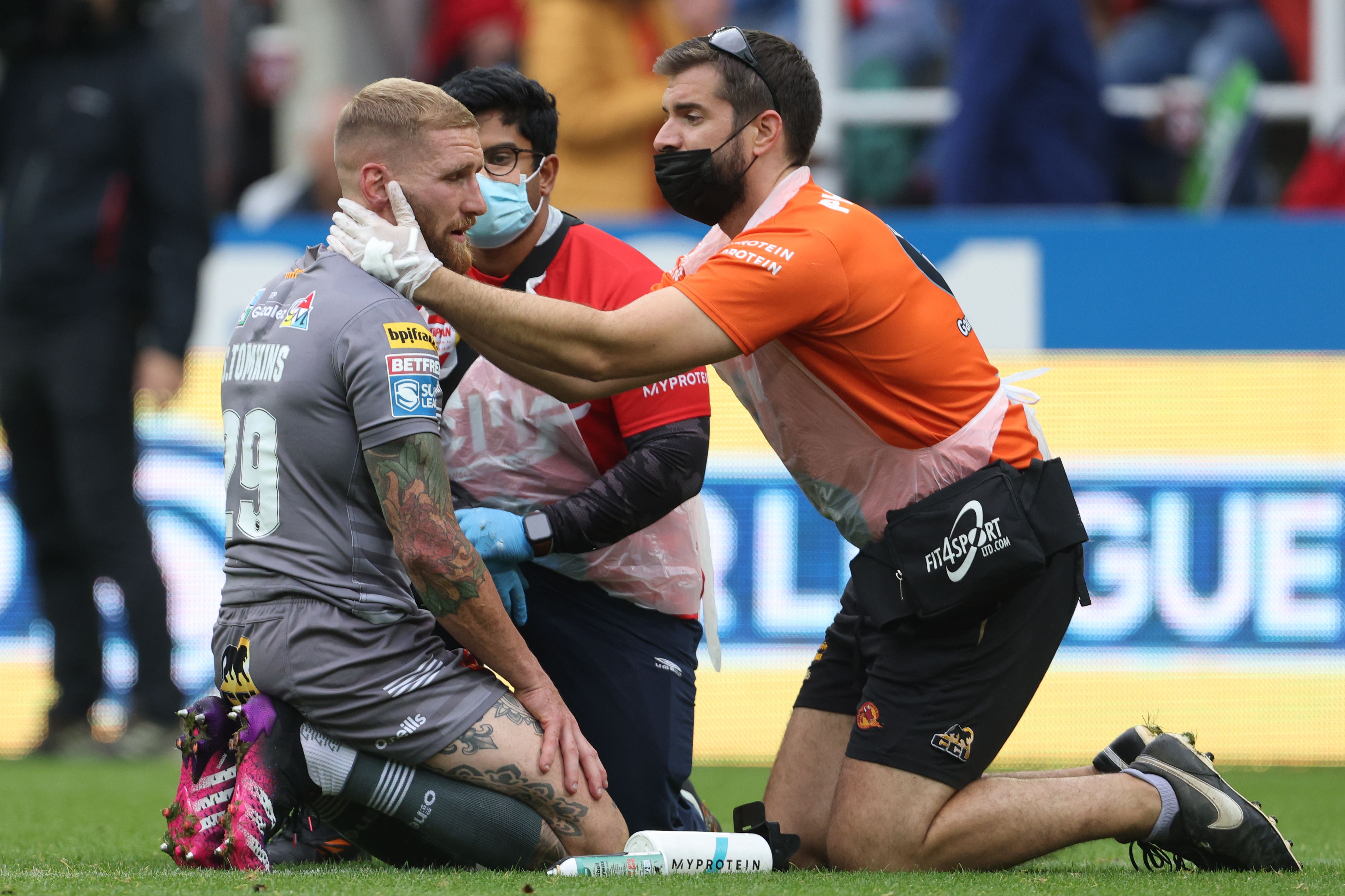Three or more concussions linked to worsened brain function in later life
The data comes from the PROTECT study.

Your support helps us to tell the story
From reproductive rights to climate change to Big Tech, The Independent is on the ground when the story is developing. Whether it's investigating the financials of Elon Musk's pro-Trump PAC or producing our latest documentary, 'The A Word', which shines a light on the American women fighting for reproductive rights, we know how important it is to parse out the facts from the messaging.
At such a critical moment in US history, we need reporters on the ground. Your donation allows us to keep sending journalists to speak to both sides of the story.
The Independent is trusted by Americans across the entire political spectrum. And unlike many other quality news outlets, we choose not to lock Americans out of our reporting and analysis with paywalls. We believe quality journalism should be available to everyone, paid for by those who can afford it.
Your support makes all the difference.Experiencing three or more concussions is linked to worsened brain function in later life, according to a new study.
People reporting three or more concussions – even mild ones – had significantly worse cognitive function, which got successively worse with each subsequent concussion after that, research led by teams at the University of Exeter and the University of Oxford found. Attention and completion of complex tasks were particularly affected.
The researchers have said the data indicates athletes suffering multiple concussions should be counselled about the risk of continuing to play sport.
The research, published in the Journal of Neurotrauma, included data from more than 15,000 UK-based participants of the online PROTECT study, aged between 50 and 90.
They reported the severity and frequency of concussions they had experienced throughout their lives and completed annual, computerised tests for brain function.
Lead investigator Dr Vanessa Raymont from the University of Oxford said: “We know that head injuries are a major risk factor for dementia and this large-scale study gives the greatest detail to date on a stark finding – the more times you injure your brain in life, the worse your brain function could be as you age.
“Our research indicates that people who have experienced three or more even mild episodes of concussion should be counselled on whether to continue high-risk activities.
“We should also encourage organisations operating in areas where head impact is more likely to consider how they can protect their athletes or employees.”
Sport’s efforts to reduce the risk of exposure to brain injuries have been in the spotlight again already this year.
The Rugby Football Union’s handling of plans to lower tackle height in the grassroots game have faced criticism over the last week, while on January 18, football’s lawmakers opted not to permit a trial of temporary concussion substitutes despite facing calls to do so from the world players’ union FIFPRO and the World Leagues Forum.
The researchers in this new study found that reporting even one moderate-to-severe concussion was associated with worsened attention, completion of complex tasks and processing speed capacity.
Dr Susan Kohlhaas, director of research at Alzheimer’s Research UK, said: “Studies like this are so important in unravelling the long-term risks of traumatic brain injury, including their effect on dementia risk.
“These findings should send a clear message to policy makers and sporting bodies, who need to put robust guidelines in place that reduce risk of head injury as much as possible.”
Dr Adam White, head of PFA brain health, said: “The findings from the PROTECT study are a stark reminder of the serious consequences that head injuries can have on a person’s cognitive function in later life.
“They highlight the importance of football’s lawmakers taking action to implement measures aimed at protecting players from head injuries. Updated rules must be a priority, combined with a focus on limiting exposure to repetitive head impacts through a reduction of heading in training.
“Moreover, we must work together to raise awareness and educate all members of the football community, from management teams to medical personnel and crucially players, about concussions and the importance of taking head injuries seriously. By working together, we can create a safer playing environment and ensure the health and wellbeing of players at all levels are best protected.”
Join our commenting forum
Join thought-provoking conversations, follow other Independent readers and see their replies
Comments